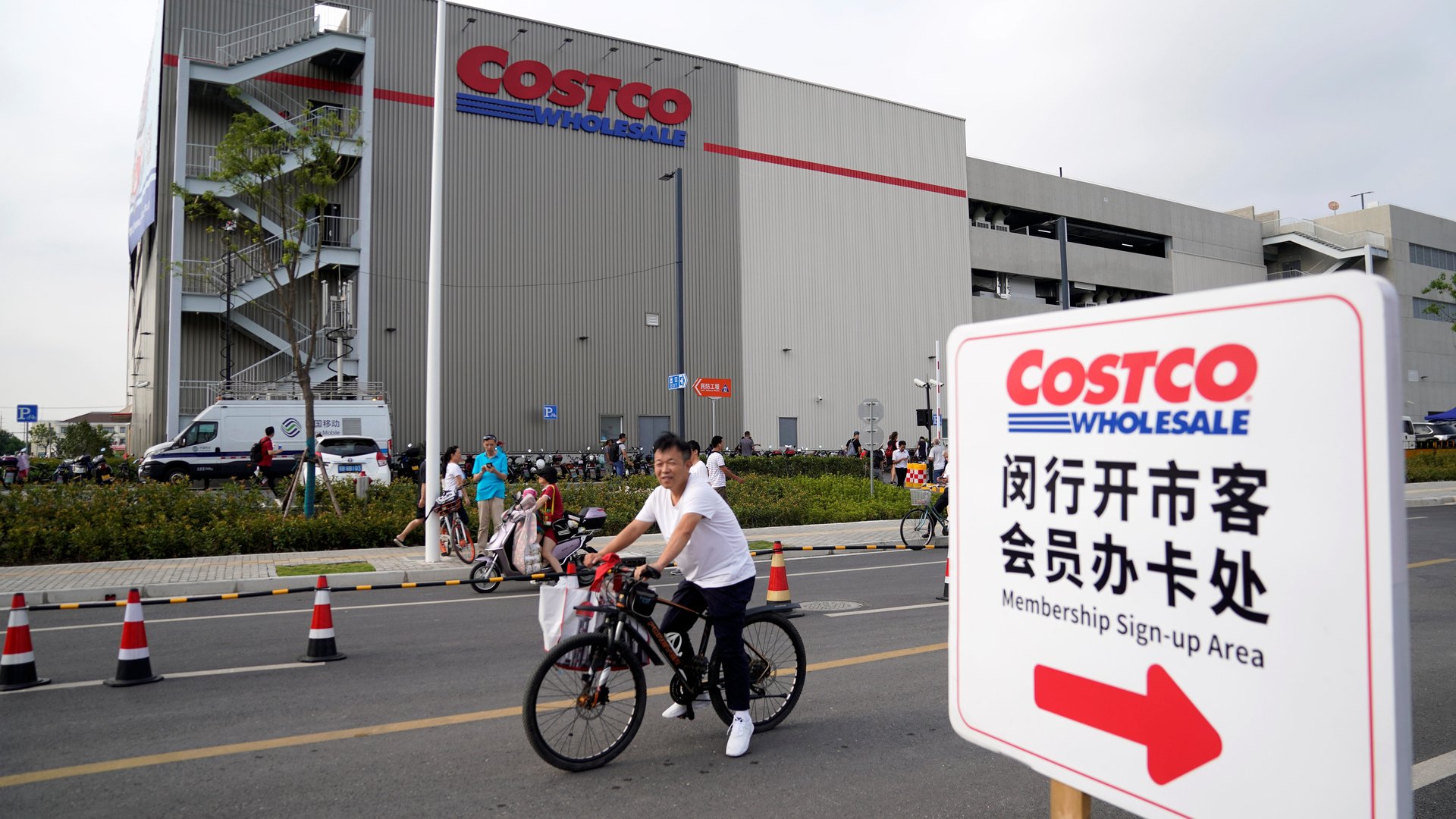Chinese influencers can’t go to LA, so they’re posing at a Shanghai Costco
Coronavirus restrictions have kept Chinese travelers isolated from the outside world for nearly two years. To cope, the country’s influencers have found a new way to entertain themselves and their followers: taking photos in front of American big box store Costco’s Shanghai store, and pretending to be in Los Angeles.


Coronavirus restrictions have kept Chinese travelers isolated from the outside world for nearly two years. To cope, the country’s influencers have found a new way to entertain themselves and their followers: taking photos in front of American big box store Costco’s Shanghai store, and pretending to be in Los Angeles.
China has adopted strict border controls since the coronavirus outbreak began early last year. So far, it remains difficult for Chinese people to travel outside the country, which has tightened the issuance and renewals of passports in order to curb the pandemic.
Many Chinese youngsters stuck at home have come up with ways to create a sense of being somewhere else. On Chinese social media, they have posted pictures of themselves in photogenic spots in China with captions such as “pretending to be in a foreign country.” The latest example of this trend is influencers posing in front of the Shanghai Costco, known as kai shi ke (开市客) in Chinese, on social shopping and lifestyle app Xiaohongshu (Little Red Book).
More than 200,000 people signed up for a Costco membership when the store opened in Shanghai 2019, waiting for over half an hour to pay for their goods on opening day. The chain expects to open its second store in the country in November, in the southern city of Suzhou.
Several of the posts in front of the Shanghai Costco are captioned “pretending to be in Los Angeles,” or “back to the west coast,” and show the influencers sitting inside shopping carts, holding pizza boxes and cups of Coke, or kneeling in front of the chain’s warehouse building. One of the influencers’ favorite spots is the store’s parking lot, where they can pose in front of the chain’s big logo.
Chinese consumers remain interested in America
Just like elsewhere in the world, influencer culture has taken off in China. Called “internet celebrities” in the country, some have obtained a status equal to movie stars, garnering followings in the tens of millions on the Chinese internet. The Costco snappers, whose followers range from in the hundreds to 200,000, post regularly about their outfits, visits to popular Chinese coffee shops and restaurants, and trips to fashion shows. Chinese influencers often appear to lead internationalized lifestyles, teaching people how to dress in American fashions, or showing off handbags from brands like Chanel, in a bid to appeal to followers who are eager to embrace a trendy lifestyle.
The influencers don’t seem to be trying to trick their followers into thinking they are really in LA. Rather, the photos are tongue-in-cheek guides to making one’s pictures look more exotic when options for travel are restricted.
“Costco is really great, the pictures taken there really have the vibe of being in LA! If you babes also want to take such pictures I suggest you arrive here at around 4pm, when the light is good…and remember to wear clothes with brighter colors!” posted a Xiaohongshu user this month. Another influencer on the app considerately reminded her followers that if they are not members of Costco, they should bring “props,” such as a pizza box and Coke, for taking photos, as members can go buy the items from the chain directly,” the influencer wrote. “If you cover the car plates [it] looks exactly like if you were in LA.”
The number of Chinese tourists to the US had been growing steadily in the two decades prior to the pandemic, bringing billions of dollars in tourism revenue for the country. Trade war tensions saw the number decline for the first time in years to around 3 million Chinese citizens in 2018. China was still the third largest source for overseas travelers to the US that year.
Costco’s popularity with influencers is an illustration of Chinese citizens’ ongoing interest in American culture and brands, despite persistent tensions between the two countries over trade, politics, and the spread of the coronavirus. Last month, tickets for the opening day of Universal Studios’ new theme park in Beijing sold out within a minute on some online Chinese booking sites.